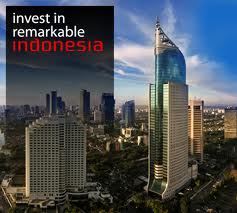China and other emerging nations are lifting the global economy, but their strength threatens to come at the expense of the United States and Europe.
The emerging countries are benefiting from low-priced exports fueled by artificially low currencies. That’s raising the prospect of trade frictions for years to come.
In its latest economic forecast, the International Monetary Fund predicts the world economy will expand 4.8 percent this year and 4.2 percent next year. That would far surpass last year’s 0.6 percent decline, the worst performance since World War II.
Growth in China is forecast to be 10.5 percent this year and 9.6 percent next year. Brazil’s economy is expected to grow 7.5 percent this year before slowing to 4.1 percent next year.
But the IMF forecast, released Wednesday, points to lingering weakness in the United States and Europe after the worst recession in decades.
The agency said that the global economy will require a balancing act: Countries with huge trade and budget deficits such as the United States will need to boost exports. And countries with big trade surpluses such as China must reduce their dependency on exports and boost domestic demand.
But the U.S. has argued that China has manipulated its currency to gain trade advantages and helped suppress U.S. exports. The undervalued Chinese currency has made Chinese goods cheaper for American consumers. It’s also hurt U.S. companies by making their products costlier in China.
China said in June that it would move to a more flexible exchange-rate policy. But the yuan has risen by just over 2 percent since then.
Lawmakers facing midterm elections have put pressure on the Obama administration to impose trade sanctions on China. Treasury Secretary Timothy Geithner on Wednesday stepped up pressure on Beijing to make more progress to let its currency fluctuate. In a speech at the Brookings Institution, Geithner said the United States would make currencies a major topic at international finance meetings this weekend in Washington.
In a question-and-answer session, Geithner rejected the notion that other nations are letting the United States take the lead in trying to get China to revalue its currency. Critics say other countries fear upsetting Chinese leaders and losing sales for their companies. But Geithner did say the IMF should play a bigger role in monitoring how countries manage their currencies.
“It is not good for the world, for the burden of solving this broader problem, the exchange rate problem, to rest on the shoulders of the United States,” he said.
He said other nations have been hurt by China’s undervalued currency and would like to see Beijing adjust its currency.
David Wyss, chief economist at Standard & Poor’s in New York, noted that China’s undervalued currency is a threat not only to the United States but also to many European and Asian nations. As an example, he pointed to the Bank of Japan’s announcement this week that it planned to buy bonds to expand its money supply.
That move is intended to help limit the surging value of the Japanese yen against the dollar and the yuan, Wyss said. A high yen makes Japanese exports expensive for buyers in China, the United States and elsewhere.
“The Chinese are doing pretty well, in part because of very strong exports fueled by an undervalued yuan,” Wyss said. “You are already starting to see the beginning of currency wars.”
Wyss said he didn’t expect China to respond quickly and let its currency rise in value at a much faster rate.
China’s economy remains only one-third the size of the U.S. economy. But that gap is likely to narrow. Some analysts forecast that China will overtake the United States as the world’s largest economy within the next two decades.
The IMF prediction of 2.6 percent growth for the United States this year is historically weak coming after a recession. It marks a sharp reversal from the 2.6 percent decline in U.S. activity last year. That was the steepest drop since 1946. The U.S. forecast is down from a 3.3 percent projection the IMF made in July.
But the U.S. economy slowed sharply in late spring and summer this year as the European debt crisis shook the confidence of investors and businesses. The IMF’s forecast of 2.3 percent U.S. growth for 2011 is down from its 3 percent estimate in July.
Growth prospects are even dimmer in Europe. The 16 nations that use the common euro currency will see their economies average 1.7 percent growth this year and 1.5 percent next year, the IMF says.
Growth in Japan is projected to be 2.8 percent in 2010 and 1.5 percent in 2011. Its 2011 estimate was trimmed because Japan is still struggling to emerge from nearly two decades of anemic growth.
Combined, advanced economies such as the United States and Europe are forecast to grow 2.7 percent this year and 2.2 percent next year.
By contrast, emerging and developing economies such as those in China, Russia, Eastern Europe and Latin America, are expected to expand 7.1 percent this year and 6.4 percent in 2011 – more than double the growth rates of the advanced economies.
The IMF said the recovery from the recession remains vulnerable to threats, including soaring budget deficits in many nations. It says credible plans to cut deficits are urgently needed.
The IMF’s latest World Economic Outlook indicates that more than 210 million people across the globe are unemployed. That’s an increase of more than 30 million since 2007 before the recession began.
source : thejakartapost.
Incoming search terms:
- indonesia economic outlook 2011
- indonesian currency strength
- Indonesia FDI forecast
- fdi indonesia 2011
- indonesia currency strength
- indonesia emerging economy
- indonesia economy forecast 2011
- Foreign Direct Investment Indonesia 2011
- indonesia fdi 2011
- currency strength of indonesia



